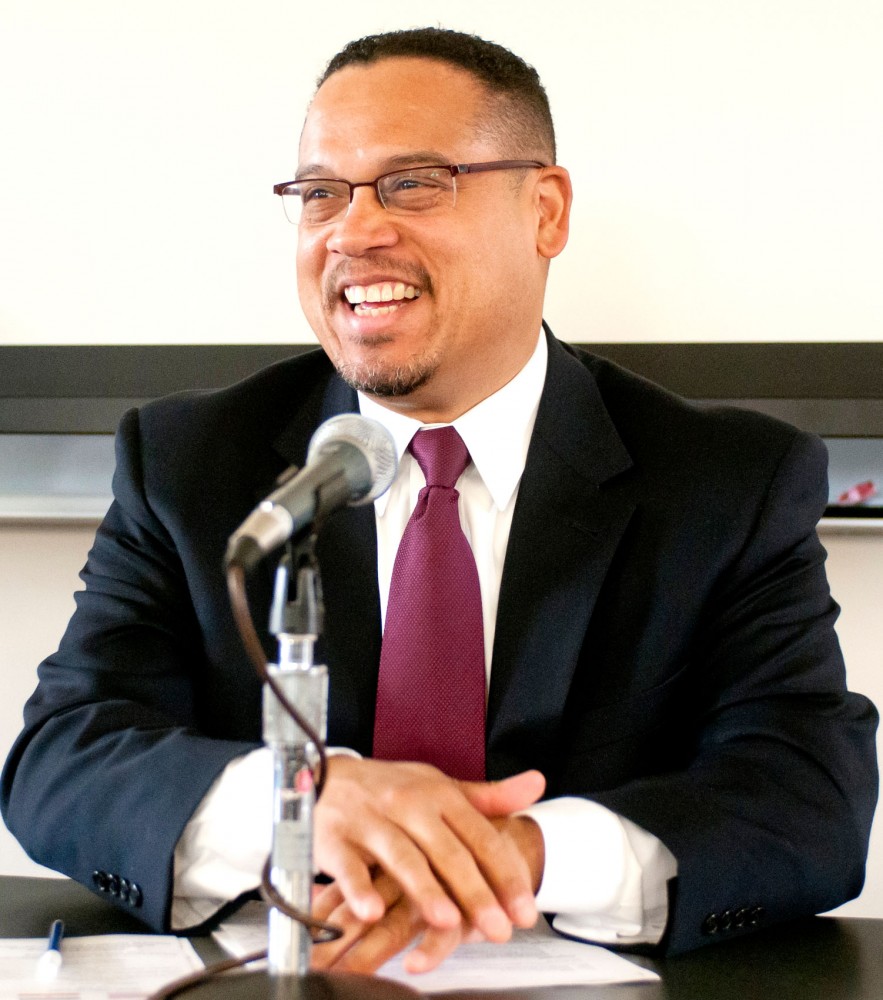U.S. Rep. Keith Ellison, D-Minn., and policy experts came together Monday on the University of Minnesota campus to discuss the United States’ relations with Iran.
Trita Parsi, an expert on U.S.-Iranian relations and the founder and president of the National Iranian American Council, along with University Department of Anthropology chair William Beeman joined Ellison to make up the panel of speakers.
The panel’s discussion focused on the complex and contentious relationship between the U.S. and Iran. Eric Schwartz, dean of the Humphrey School of Public Affairs, moderated the discussion.
The U.S. has imposed tough sanctions in efforts to deter Iran’s nuclear ambitions. Although Iran denies it, the U.S. and its allies fear that Iran is developing a nuclear weapon.
“This Iran issue is extremely important because if it goes wrongly, it could create enormous complications in the region of the Middle East with very dramatic implications for the United States and its allies,” Schwartz said in an interview.
Ellison commented on some Americans’ hostility toward Iran. Former
Republican presidential candidate Rick Santorum said he would bomb Iran’s nuclear facilities if it didn’t open them up for international inspectors.
Meanwhile, some fear that war with Iran could be imminent. In February, Defense Secretary Leon Panetta said there was a significant chance that Israel would bomb Iran in April, May or June, prompting worry that would draw the U.S. into the conflict.
“You’d have to be deaf not to hear the drum beat for war this year with Iran,” Ellison said.
However, those on the panel, including Ellison, advocated for peaceful discussion between American and Iranian leadership. Ellison co-authored a letter to President Barack Obama earlier this year, urging his administration to “utilize all available tools of diplomacy to resolve the crisis over Iran’s nuclear program and prevent another costly war in the Middle East.”
Parsi said Iran doesn’t currently have the ability to build a nuclear weapon, and with current inspection systems, the U.S. would know months in advance if it was developing one. He also said war with Iran would be costly, considering how much larger it is than Iraq.
Ellison, whose 5th Congressional District includes Minneapolis, talked about citizens’ ability to influence how the issue is addressed.
“American public opinion has a lot to do with the direction of this conflict,” he said. “Your attention and engagement on this issue makes a big difference.”
Benjamin Steinberg, president of the Middle Eastern Affairs Legal Society at the University, echoed Ellison’s statements and emphasized the University’s position in the public square.
“It’s important for students and professors and other people within the University community to care about these things because their voice resonates in Washington probably more than a lot of other communities.”
Ellison closed his opening remarks by reminding those in attendance of their role.
“I am able to maintain the position for peace, diplomacy and dialogue because I represent a constituency that wants that,” he said. “In order to remain vocal as I have been, it all depends upon you.”
-The Associated Press contributed to this report.


